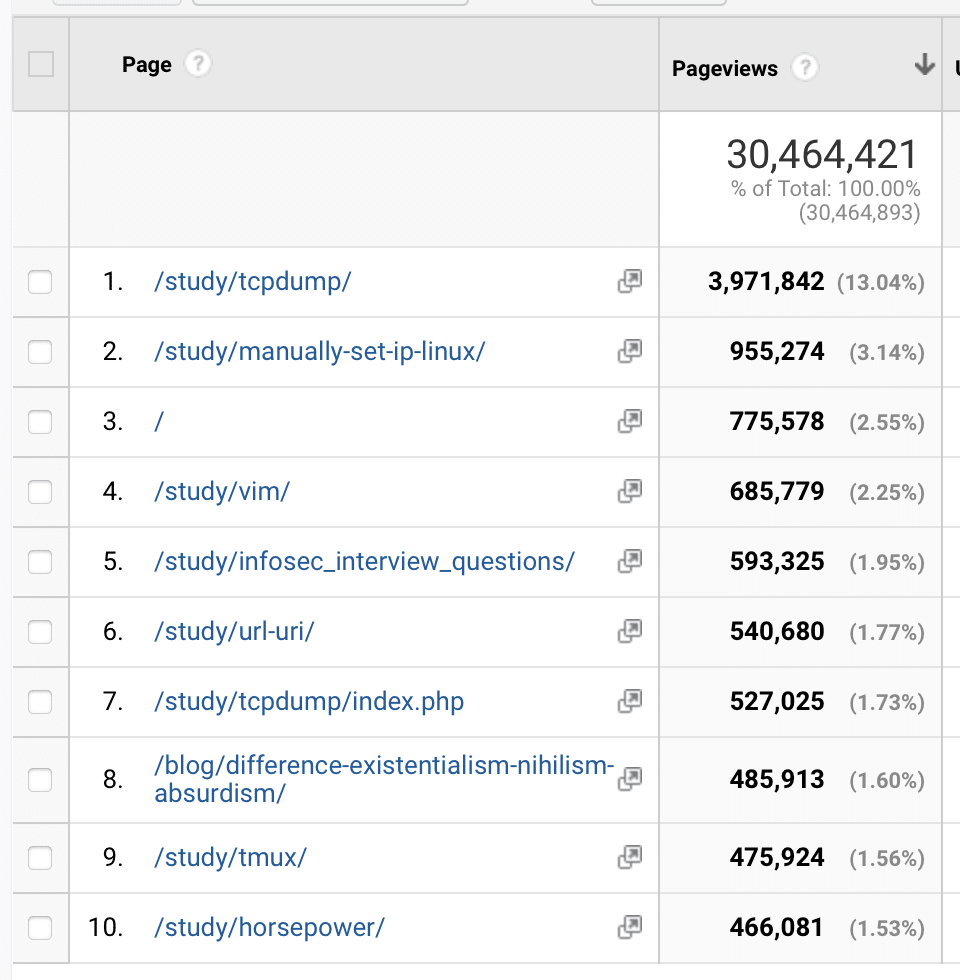AI is the End of Tutorial Webpages

Since 1999, most of my site traffic has been from technical tutorials. That’s going away.
I’ve been writing technical tutorials > for things like tcpdump, lsof, etc, for years. More broadly, I’ve been explaining technical topics in more approachable language.
Only ideas will survive this purge.
Here’s a good example: the difference between red and blue teams. Or the definition of a purple team, and when you might use one. Or even better: disambiguation of all the different assessment types, e.g., vulnerability assessments, penetration tests, white box vs. black box assessments, etc.
Tutorials are replaced with AIs explaining documentation.
These tutorials were tremendously successful, and that time is now over.
The future interface for tutorials is digital assistants. When you want to know something—virtually anything—you’ll simply ask your assistant. Or, for many people it’ll be more than an assistant. It’ll be their companion.
This is MacGPT’s interface.
Anyway, if you want to know the proper syntax for adding a port, you’ll just ask it. And it’ll tell you. If you tell it that was not what you wanted, and you need something else on top of it, it’ll tell you that too.
Manually searching webpages for gold is about to feel very antiquated.
Here’s one I just thought of for finding NTP traffic.
The old method for this was vastly inferior. You’d take your question to Google, type it in, and then start wading through webpages of questionable information architecture until you found the right one.
But once you found it, you only had the webpage. You still had to read/parse that webpage to find (hopefully) what you were looking for.
Not the case with AI assistants. They give you the specific answer. No google required.
The one I’m using above is called MacGPT >, which is just a slick front end to GPT-4. But that’s crude compared to what we’re about to have. We’re about to just ask our own assistant, who knows everything about us and how we like to consume information.
So we’ll ask it, and it’ll consume the world’s APIs, and give you the perfect answer in the way that works best for you.
I enjoyed making tutorials. I did it for 24 years. It was a solid run. But that’s over now.
What comes next
So what do we write if we don’t write tutorial-like content? Or more broadly—if we’re not disseminating factual information, which is what AIs will do far better.
I think the answer is some combination of the following:
Ideas about the world, i.e., essays about one’s own opinions
Fiction, like stories and such
Art, like screenplays or poems
…and that’s all I can think of. I’m sure I’m missing something.
But the point is, it will be deeply human things. Things that only you can make in that moment.
WebMD. Blinkest. Examine.com. Tech tutorials. Etc. Those are all wrecked. Mostly. Maybe you can write a tutorial in a way that feels more like essay or art, and still get away with it. But most won’t.
Next level
And here’s the crazier part. Nobody’s going to read that stuff. No people anyway. Your content will be consumed by APIs and AI assistants.
It’ll be parsed and/or baked into models. And it’ll be available if someone asks for it.
So if someone says, "What does Daniel Miessler think about using Purple Teams?", their AI will be able to answer. But they won’t be navigating to my website to read it with their own eyes. Yuck. That’s so 2022.
We will produce ideas, opinions, and art. AIs will consume them and make them available to other AIs. And when humans want to know about a thing, their personal AI will tell them about it.
That’s the future we’re walking into. Not in 2027. Or 2025. Now.
It’s starting now.